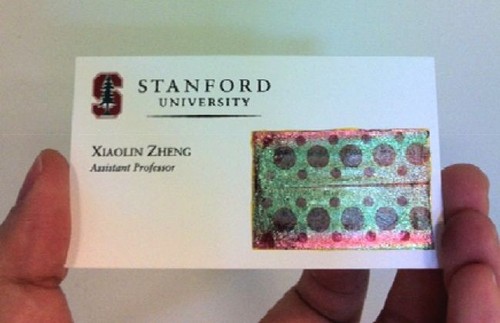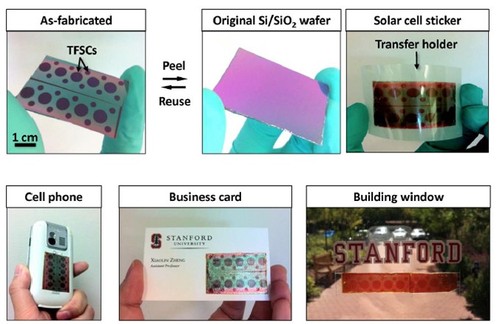Flexible Solar Cells Can Be Applied To Any Surface

Researchers at Stanford University have created thin, flexible solar panels that can be applied like a sticker to a variety of both flat and curved surfaces – including glass, plastic and paper – without any loss of efficiency. They are lighter than equivalent-sized traditional photovoltaic panels and not so expensive to make. Unlike existing flexible versions, these peel-and-stick cells are made from standard materials that do not need special production techniques and/or materials. To get the new solar panels scientists applied a 300-nanometer layer of nickel onto a rigid silicon/silicon dioxide wafer, thin-film solar cells were then deposited onto the nickel and covered by a protective polymer and a layer of thermal release tape. This innovative method allows to apply solar cells to mobile devices, helmets, dashboards or windows. Xiaolin Zheng, assistant professor of mechanical engineering claims, that combining both thin-film electronics and thin-film solar cells will enable in future many new products from smart clothing to new aerospace systems.
Via:gizmag.com


| Tweet |











